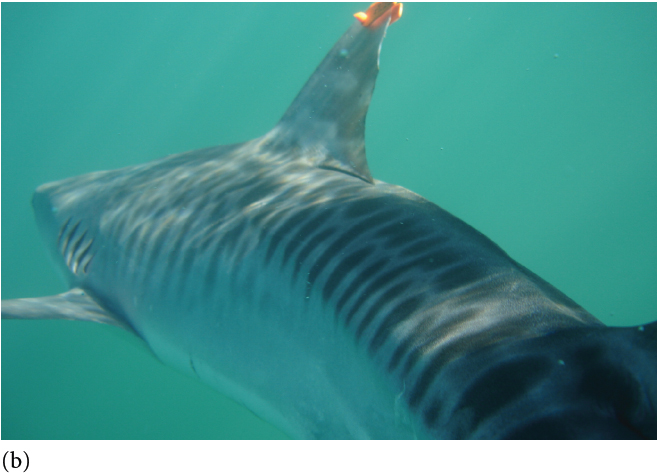 |
| Previous Image | Next Image |
| Description: Tiger sharks are a top predator of marine mammals though much of their range, including Shark Bay, Australia (fig. 14.14a). Larry Dill and a team of students from Simon Fraser University, along with colleagues around the world, have been studying what role fear may be playing in the behavioural decisions of the shark's potential prey. One common prey are dugongs, Dugong dugon, large herbivorous mammals that feed upon seagrass beds (fig. 14.15b). Dill and his colleagues found that dugongs altered the location of where they feed as a function of the density of tiger sharks (Wirsing, Heithaus, and Dill 2007). When sharks were relatively absent, the dugongs were more likely to occupy shallow areas of high seagrass density. However, when tiger sharks were more abundant, the dugongs increased their use of the deeper areas, even though food availability was lower. Dill and his colleagues suggest the dugongs are faced with a food vs. safety tradeoff, yet another example of a non-consumptive effect of predators.
Picture Stats: Views: 1047 Filesize: 205.78kB Height: 475 Width: 659 Source: https://biology-forums.com/index.php?action=gallery;sa=view;id=1964 |
